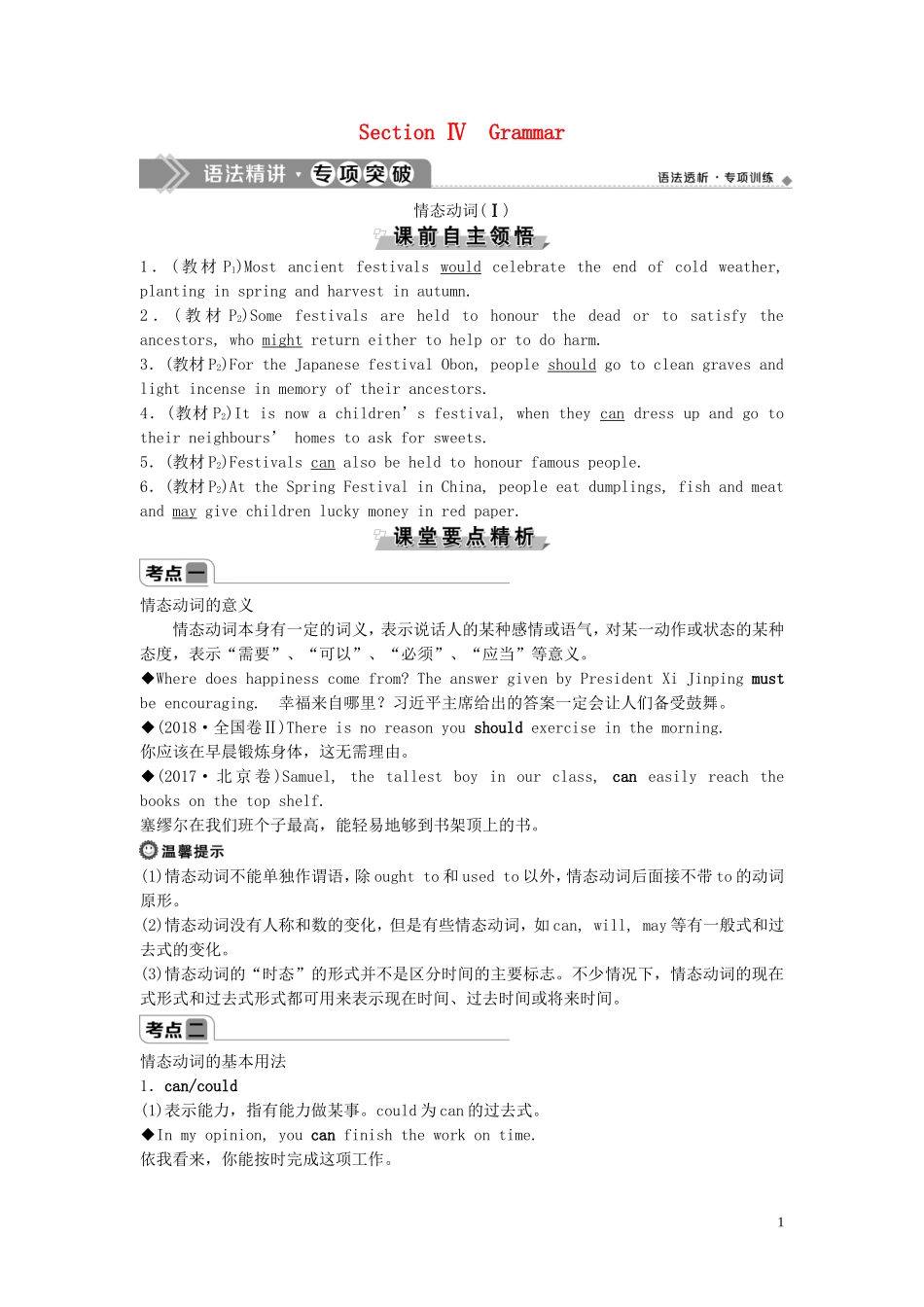Section Ⅳ Grammar情态动词(Ⅰ)1 . ( 教 材 P1)Most ancient festivals would celebrate the end of cold weather, planting in spring and harvest in autumn.2 . ( 教 材 P2)Some festivals are held to honour the dead or to satisfy the ancestors, who might return either to help or to do harm.3.(教材 P2)For the Japanese festival Obon, people should go to clean graves and light incense in memory of their ancestors.4.(教材 P2)It is now a children’s festival, when they can dress up and go to their neighbours’ homes to ask for sweets.5.(教材 P2)Festivals can also be held to honour famous people.6.(教材 P2)At the Spring Festival in China, people eat dumplings, fish and meat and may give children lucky money in red paper.情态动词的意义情态动词本身有一定的词义,表示说话人的某种感情或语气,对某一动作或状态的某种态度,表示“需要”、“可以”、“必须”、“应当”等意义。◆Where does happiness come from? The answer given by President Xi Jinping must be encouraging. 幸福来自哪里?习近平主席给出的答案一定会让人们备受鼓舞。◆(2018·全国卷Ⅱ)There is no reason you should exercise in the morning.你应该在早晨锻炼身体,这无需理由。◆(2017· 北 京 卷 )Samuel, the tallest boy in our class, can easily reach the books on the top shelf.塞缪尔在我们班个子最高,能轻易地够到书架顶上的书。(1)情态动词不能单独作谓语,除 ought to 和 used to 以外,情态动词后面接不带 to 的动词原形。(2)情态动词没有人称和数的变化,但是有些情态动词,如 can, will, may 等有一般式和过去式的变化。(3)情态动词的“时态”的形式并不是区分时间的主要标志。不少情况下,情态动词的现在式形式和过去式形式都可用来表示现在时间、过去时间或将来时间。情态动词的基本用法1.can/could(1)表示能力,指有能力做某事。could 为 can 的过去式。◆In my opinion, you can finish the work on time.依我看来,你能按时完成这项工作。1(2)表示请求或允许。could 比 can 语气更加委...


